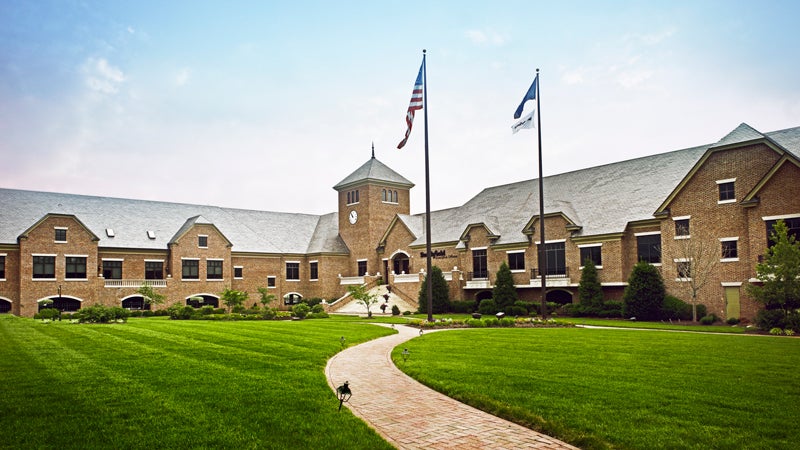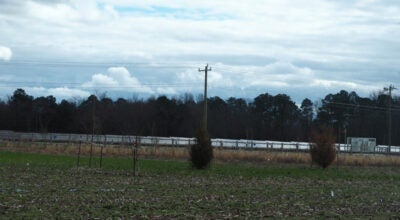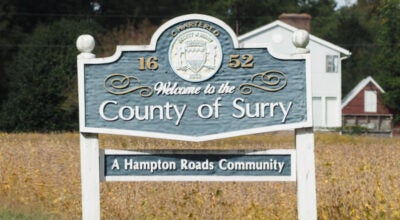Smithfield Foods unaffected by ‘foreign adversaries’ law, company, state say
Published 4:34 pm Monday, April 10, 2023

- Smithfield Foods, though now owned by Hong Kong-based WH Group, maintains its corporate headquarters in Smithfield. (File photo)
A new state law barring “foreign adversaries” from owning Virginia farmland should have no impact on the community’s Chinese-owned anchor employer, Smithfield Foods, according to a company spokesman and the governor’s office.
Gov. Glenn Youngkin signed legislation on March 27 that declares “void” any purchase of farmland by a “foreign government or nongovernment person” the U.S. Secretary of Commerce has determined to have “engaged in a long-term pattern or serious instance of conduct significantly adverse” to national security. The secretary’s list, as of March 30, named five nations, including China and its Hong Kong Special Administrative Region.
The new state law allows Virginia’s attorney general or any county, city or town attorney in a locality where a foreign land purchase has occurred to “file an action” to “eject the foreign adversary from possession,” at which point the land would be deeded to the state at no cost.
Hong Kong-based WH Group purchased Smithfield Foods in 2013, though the global meatpacking giant remains headquartered in Smithfield, where it was founded in 1936.
According to Smithfield’s vice president of corporate affairs, Jim Monroe, the company currently owns just over 3,900 acres of farmland in Virginia.
“We are not impacted because we are not owned or controlled by a foreign government,” Monroe said.
Youngkin spokeswoman Macaulay Porter agreed that Smithfield Foods is “not impacted by the legislation” and is “not a foreign adversary, as defined by the bill.”
WH Group, Monroe explained, is “a publicly traded company with investors from around the world, including the United States.”
Simon Stevenson, the Robert Stanton endowed chair of real estate and economic development at Old Dominion University, also agrees that Smithfield should “probably be OK,” though he acknowledged the possibility that “this may be something that could end up in the courts given the corporate governance issues.”
“The problem with any kind of legislation is how do you make a distinction between farmland and other forms of real estate? … Foreign investors are such major investors in real estate, both as sole owners and as investors in funds, any legislation is going to have to be phrased very carefully so as to avoid legal challenges,” Stevenson said.
Just over a month after Smithfield Foods announced its merger with WH Group, then known as Shuanghui International Holdings Ltd., the U.S. Senate Committee on Agriculture, Nutrition and Forestry held a July 10, 2013, hearing for the stated purpose of examining foreign purchases of American food companies. Daniel Slane, a former member of the U.S.-China Economic and Security Review Commission, testified at the hearing that Shuanghui was a “Chinese state-controlled company.”
“For China, the question of state ownership or control can be particularly complicated because the government’s role is not always straightforward or disclosed,” states a written record of Slane’s testimony. “Despite economic reforms and moves toward privatization, much of the Chinese economy remains under the ownership or control of various parts of the Chinese government.”
The Chinese Communist Party, Slane’s written testimony states, can in some cases “exert control by deciding the composition of corporate boards and the corporation’s management team. China’s state-owned banks may use below-market rate loans or loan forgiveness as a tool to dictate the management of corporations. The government favors certain sectors of the economy such as high technology manufacturers, with extensive subsidies, including tax abatements. … Chinese companies seeking to invest abroad must first receive government approval. In these and other ways, the government directs the activities of companies that may be listed as private on the three Chinese stock exchanges but are in fact government owned or controlled.”
Former Smithfield Foods President and CEO Larry Pope, who also spoke at the 2013 hearing, testified that the company would be “the same old Smithfield, only better” and asserted the Chinese government had “absolutely no ownership stake or management control in Shuanghui.”
Monroe, reacting to Slane’s now nearly decade-old allegations, reaffirmed the company’s position that Smithfield is not owned or controlled by the Chinese government but rather by a U.S.-based management team headquartered here in town.
Since WH Group’s purchase, Smithfield Foods has grown in revenue from $13 billion in 2013 to $19 billion in 2022, and in total employees from 37,000 to roughly 40,000, Monroe said.
Smithfield Foods employs about 3,000 people locally between its headquarters and the meatpacking plant in town.
Virginia’s “foreign adversaries” farmland law was passed as two identical bipartisan bills, one in the House of Delegates and one in the State Senate.
Senate Bill 1438 passed the Senate 23-16 with support from 19 Republicans and four Democrats. House Bill 2325 passed the House 67-29 with the support from 51 Republicans and 16 Democrats.
During “crossover” in February, when each chamber gets to vote on the other’s approved bills, SB 1438 passed the House 67-30 with support from 50 Republicans and 17 Democrats. A Senate substitute for HB 2325 passed the Senate 23-16 with support from 19 Republicans and four Democrats.
A provision of the new law requires the state to compile an annual report containing the total amount of agricultural land under foreign ownership. The state is to release its first report by July 1.
Del. Robert Bloxom, R-Accomack, who’d sponsored the House version, told The Smithfield Times the legislation “shouldn’t restrict business with adversarial ties” but “does prevent the adversarial governments from directly buying land.”
A wave of anti-China bills
“Where it gets interesting is that the U.S. has largely lagged behind a lot of other countries in farmland being owned by investors, so these kinds of issues haven’t really arisen before, at least to the same extent,” Stevenson said.
Stevenson, who is originally from the United Kingdom, explained institutional investors like pension funds started investing in U.K. farmland, especially large arable farms, back in the 1970s.
The new Virginia law, Stevenson said, is part of a wave of similar legislation in Texas and other states aimed at curtailing Chinese influence. Forbes Magazine reported in 2021 that Texas Gov. Greg Abbott had signed the Lone Star Infrastructure Protection Act, which aims to prevent “hostile nations” from accessing Texas’s electrical grid. The bill, according to Forbes, was a direct response to a Chinese billionaire’s plans to build a wind farm near Laughlin Air Force Base.
Youngkin’s signing of Virginia’s “foreign adversaries” farmland law followed the State Senate’s defeat a month earlier of a bill by Del. Emily Brewer, R-Isle of Wight, that would have prohibited state agencies from entering into contracts for goods or services with any “scrutinized company.” The bill defined the term to mean any company “owned or operated by a foreign adversary,” and had further proposed expanding Youngkin’s 2022 executive order banning TikTok and WeChat apps from government-issued cellphones, by also applying the prohibition to any “person or entity contracting with” a Virginia executive branch agency.
Youngkin, in his December order, called TikTok and WeChat “a channel to the Chinese Communist Party.” He used a similar justification when his administration pushed Virginia to withdraw from consideration as the site of a new Ford car battery factory last year.
According to Associated Press reporting, Youngkin called the proposed joint venture between Ford and a Chinese company a “front” for the Chinese Communist Party. Ford has since announced plans to build the $3.5 billion factory in Michigan instead.





